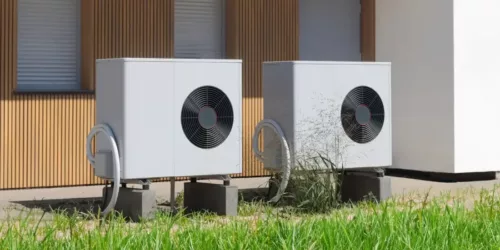How Do Air Source Heat Pumps Work?
What is an Air Source Heat Pump?
Air source heat pumps work a little differently compared to a regular gas boiler that you may be more familiar with. Instead of burning fossil fuels, an air source heat pump will use the outside air and pass it through a ‘compressor’ to increases its pressure, which in turn warms up the air to heat your home.
An air source heat pump uses electricity for this process, but the heat output is greater than the electricity required to produce it, making them more efficient than many other heating options. The heat pump will have two elements – An evaporator (the outside unit) and a water storage cylinder. You will need to ensure that you have space for both elements before considering installing an air source heat pump system.
Heat pumps take more time to heat up compared to a gas or oil powered boiler and work better with larger surface areas. This means that you may benefit from a heat pump more so if your radiators have a larger surface area. If you are limited on space, you may wish to consider a double panel or even triple panel radiator if do not already have these fitted in your home.
Air-to-water Heat Pumps
An air-to-water heat pump is more of an all-rounder. These heat pumps will be able to provide heat to radiators, underfloor heating and hot water that is fed through your entire central heating system. Most UK homes will have an air-to-water heat pump if opting to have a heat pump installed, rather than an air-to-air heat pump, as it will provide for all of your heating needs.
Air-to-air Heat Pumps
As you can probably guess from their name, an air-to-air heat pump transfers heat into the air. They work in a similar way to an air conditioning unit and they are able to cool the air during summer months. Their downside is that they cannot be used to produce hot water, so you would need a separate immersion heater for this purpose. These are generally used for smaller properties, such as flats.
Now you know what an air source pump is, this article will explain just how an air source heat pumps works.
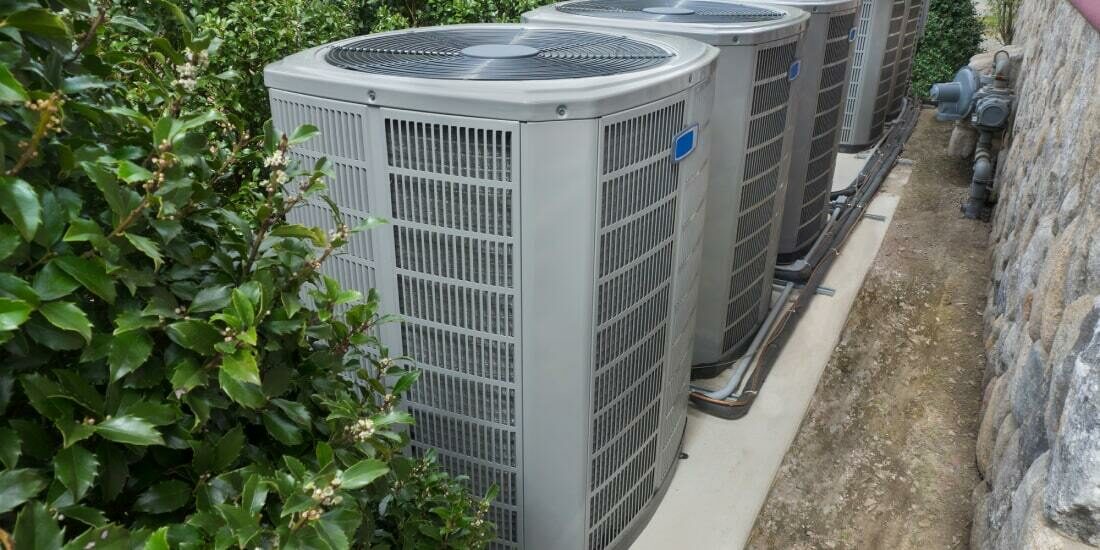
What's On This Page?
Click the links below and head straight to a specific section of the article.
- What is an Air Source Heat Pump?
- Advantages and Disadvantages of Air Source Heat Pumps
- Air Source vs Ground Source Heat Pumps
- Is an Air Source Heat Pump Right for my Home?
- Underfloor Heating and Air Source Heat Pumps
- How Much Does an Air Source Heat Pump Cost?
- Air Source Heat Pump Maintenance
- Do I Need Planning Permission?
- Air Source Heat Pumps: The Conclusion
Advantages and Disadvantages of Air Source Heat Pumps
As with anything else, there are pros and cons of having an air source heat pump installed. We’ve listed a few of these below.
Pros |
Cons |
|
|
Air Source vs Ground Source Heat Pumps
There are two main types of heat pump – air source heat pumps (as mentioned above) and ground source heat pumps. Both types of heat pump work in a similar way but a ground source heat pump will require extensive work to install. The same compression process occurs with each type of heat pump but they generate energy from different sources.
Ground Source Heat Pumps
Ground source heat pumps source energy from water circulating in underground pipes, rather than the air outside. As a result, installing a ground source heat pump will require extensive work being done in your home and garden, which can be very disruptive and take several days to complete.
There is a mixture of water and antifreeze within the underground pipe system of a ground source heat pump, which uses natural heat from the ground to raise the temperature of the fluid. This fluid is then distributed around your home via radiators, underfloor heating and hot water taps.
Is an Air Source Heat Pump Right for my Home?
There are a few questions you should ask yourself before going ahead and installing a heat pump on your property. Your answers will determine whether a heat pump would be suitable for your home or whether an alternative option may be better suited.
Do you have enough space?
Air source heat pumps are not one-size-fits-all. The model you end up installing could be quite bulky if you live in a larger property. Heat pump units are usually installed on the side or the back of your home, so you will need space for this. You will also need additional space for a water storage cylinder.
Is your home sufficiently insulated?
Many homes suffer from poor insulation, which is a contributing factor to how much you will spend on your energy bill each year. You can lose 25% of heat through the roof of your home alone if you have poor insulation. Insulation is something you should think carefully about before installing a heat pump on your property.
What heating system are you replacing?
Having a heat pump installed can come with a high upfront cost attached. If you are replacing an electric heating system, you will most certainly be able to save money on your annual bill. However, if you are replacing a gas boiler, there may be little difference and you could in fact end up spending more.
You can see the potential savings of replacing your heating system with an air source heat pump in the graph below. Costs are calculated on yearly savings you'd see if you replaced the whole system. Only a brand new oil boiler will be cheaper than installing a heat pump, but this is not the low carbon heating source of the future.
Underfloor Heating and Air Source Heat Pumps
As mentioned, air source heat pumps work much better with a larger surface area, so underfloor heating is the perfect partner for these types of heat pumps. Heat pumps will not give the same heat output as say a gas boiler, and underfloor heating can run perfectly well with a low flow temperature.
The less power that is required to heat a surface area, the cheaper it becomes. If you have underfloor heating already, getting an air source heat pump might just be the perfect combination for reducing your energy costs.
How Much Does an Air Source Heat Pump Cost?
The cost of having an air source heat pump installed can vary. It will depend on the size of the heat pump; how big your property is and whether it is an older property or newly built. You can spend anywhere from approximately £7,000 to £18,000 getting an air source heat pump installed. This figure can rise to up to £45,000 for a ground source heat pump to be installed.
Since 1st April 2022, you have been able to take advantage of the Boiler Upgrade Scheme (BUS). If eligible, you can get £7,500 off the installation cost of an air or ground source heat pump. You can find out about more ways to save money by researching government grants for heat pumps. It is best to calculate the cost of installation compared to what you could save on your annual energy cost.
We advise you to get at least three quotes before going ahead with your air source heat pump installation.
Air Source Heat Pump Maintenance
One of the advantages of an air source heat pump is that it requires very little maintenance. These types of heat pumps are well-established technology, having been on the market for a very long time. Much of the heat pumps maintenance needs can be carried out by yourself, such as removing any leaves or other debris that may block the fans from working efficiently.
The manufacturer will have specific servicing requirements for each model of air source heat pump and your installer will be able to tell you more about this. However, it is recommended to get your heat pump professionally serviced every two to three years to make sure everything is working as it should be. Servicing can cost in the region of £150 plus VAT for a standard sized unit.
Do I Need Planning Permission?
Heat pumps are generally considered ‘Permitted Developments’, which means that you should not need planning permission to install an air source heat pump on your property. However, it is always advisable to seek advice, especially if you live in a listed building or conservation area. If you need to apply for planning permission, you can do so by contacting your local authority. You can find our more information on the government website.
Once you have an air source heat pump installed, you will need to register your device with your district network operator (DNO) within 10 days. You can ask your installer for more information about how to do this and some may do it for you upon completing the installation. You can find out who your local DNO is by visiting the National Grid website.
Air Source Heat Pumps: The Conclusion
Depending on your needs, an air source heat pump could be an ideal energy solution for your home. The technology is well-established and guaranteed to be more environmentally friendly than many other heating options, bringing us a step closer to net zero.
Made up your mind? Fill in a few details and we'll provide you with quotes from local suppliers.
Related articles
View all Heat Pump articles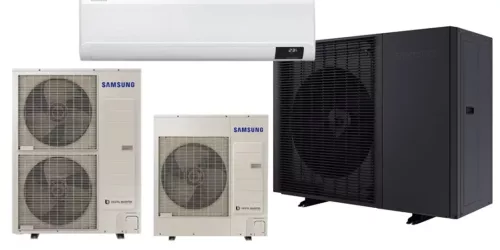
Samsung Air Source Heat Pumps: Overview and Costs
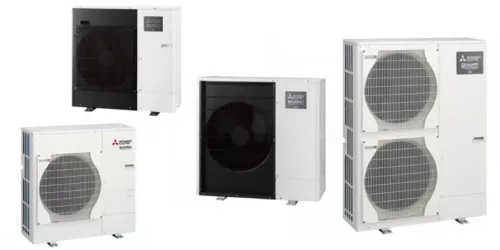
Mitsubishi Air Source Heat Pumps: Overview and Costs
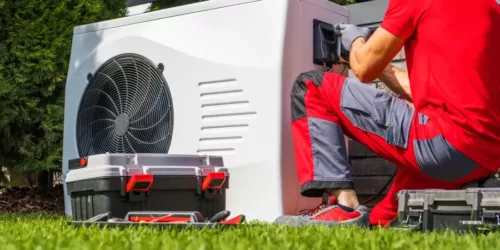
The Cost of an Air Source Heat Pump Service
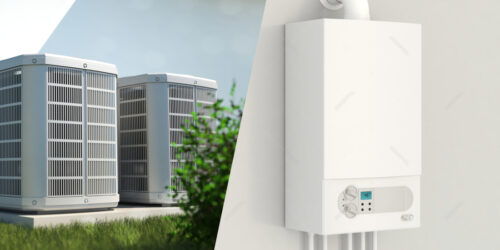
Heat Pump vs Gas Boiler - What's Better?
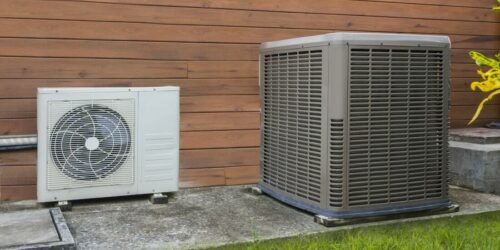
Different types of heat pumps: what’s available?
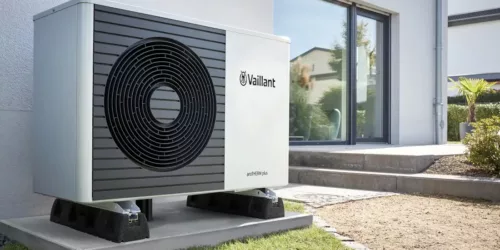
The Ultimate Guide to Vaillant Heat Pumps
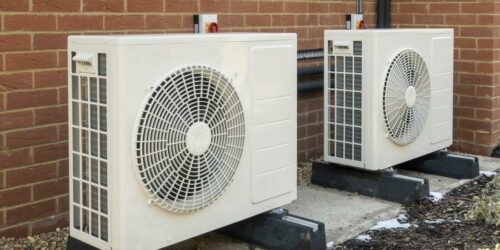
Heat Pumps: Should You Get One?
